15 August, 2002
Well, for those of you wondering where I have been and what I have
been doing, you are the fortunate ones! I am going to get you caught
up on the latest developments of the upcoming research expedition I
will be a team member of this coming April. Yes, April. I now know
that I will be with Dr. Chuck Amsler from the University of Alabama
in Birmingham. It just so happens that I am from Birmingham, live in
Birmingham, teach in Birmingham, and have three degrees from the same
university. UAB as it is called, is my alma mater. It is so
exciting to be a part of the research going on in my own city and in
the university that I graduated from. It has been a thrilling
experience to be a part of this aspect of this superior learning
community.
There will be a team of eight of us going to Palmer Station. Palmer
Station is on Anver's Island on the Antarctic peninsula. Several of
the team members will be scuba diving in the cold Antarctic waters.
Their purpose is to gather benthic invertebrate samples to study how
they exist in such extreme environments and what might affect the
predator-prey relationships there. Benthic communities are those
found on the sea floor. Invertebrates are animals without backbones.
Predators are animals that eat other animals. Prey are the animals
that they choose to eat.
We will also be studying the macroalgae in the shallow benthic waters
to see if the ozone depletion has caused any changes in the usual
nutrient rich environment. Macro means large and algae is a water
plant. If there have been any changes in these plants, if could
ultimately affect food webs all over the world because some of the
animals that feed on these plants are migratory and do not always
live in the Antarctic.
My position amongst the research team is to be a dive "tenderer." A
"tenderer" is a person who helps a diver get his/her dry suit on and
to make sure the fit is a leak-proof perfect fit. If there are any
"holes" in the fit, the icy water could potentially cause a diver to
get hypothermia. Hypothermia is a condition in which a person gets
too could in water and could literally freeze to death. I will also
be helping the divers with any "chores" they need me to do as they
prepare for a dive. I will assist them as they approach the surface
after a dive. The Antarctic waters are so clear, it is possible I
will be able to "follow" their dive and see them clearly while they
are underwater. If so, I could also be on the lookout for potential
dangers that I might see or help them surface in the case of a
problem. After samples are taken from the sea, I will assist them in
the laboratory with their experiments. This should be ex! citing and
I will be including my work and pictures daily in my online journal.
I hope you will "tune in" everyday to see what I have learned!
In order to prepare for my responsibilities as a "tenderer," I have
been practicing my "tendering" with the divers as they practice their
dives in order to go to Antarctica. We have been working at Blue
Water Park in Pelham, Alabama. Following this journal entry are some
pictures of the park and some of the team members preparing to dive.
I have been told that if I got certified to scuba, I would understand
my position a lot better and be a better "tenderer." That is a
wonderful excuse to get scuba certified! I have always wanted to get
certified, but never gotten the chance. Now, a dream is coming true.
It appears that I will be getting certified in October and I will
post pictures of my certification for you. I hope some of you are
interested in learning to scuba. You can get certified now even as a
young child for shallower depths! Remember, I LOVE water!!!
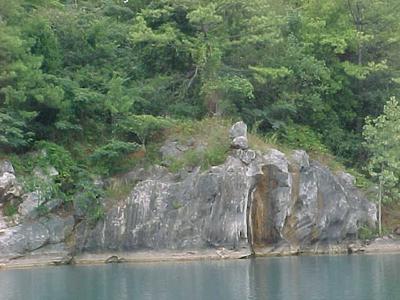
1 Blue Water Park in Pelham, Alabama is a rock quarry. A rock quarry is a place where rock was dug from the ground to be used in building or other purposes. Eventually, a rock quarry will fill up with water. Why? Under the soil is a layer of water called an aquifer. The aquifer holds all the water that seeps into the earth when it rains on the top of the ground. People who have wells get their water from this layer of water under the soil. Once a rock quarry fills with water, it becomes a lake. The walls of the lake are beautiful rocks.
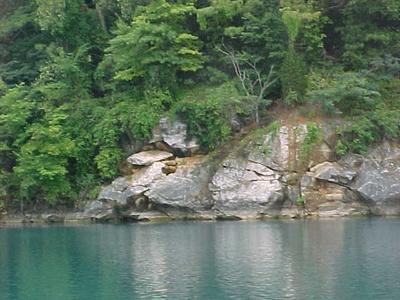
2
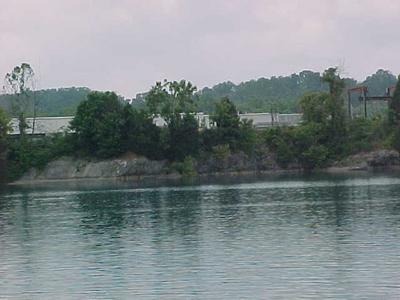
3 The next five pictures are of the Blue Water Park. I hope you see why it is called "Blue Water." It is a very beautiful area. The water is so clear.
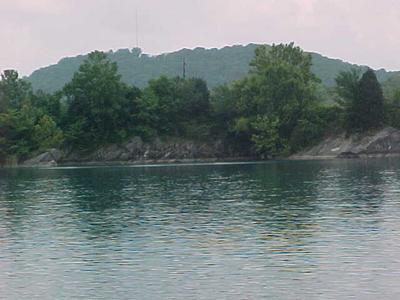
4
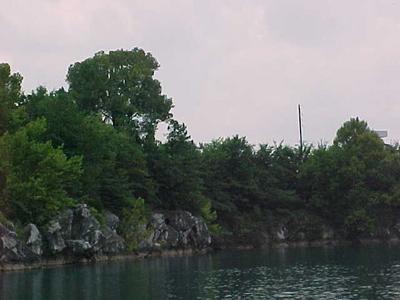
5
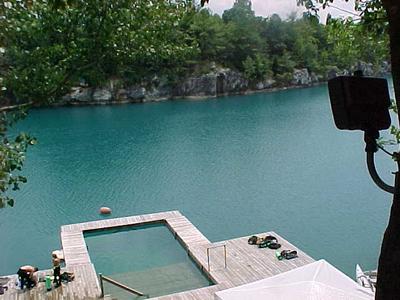
6
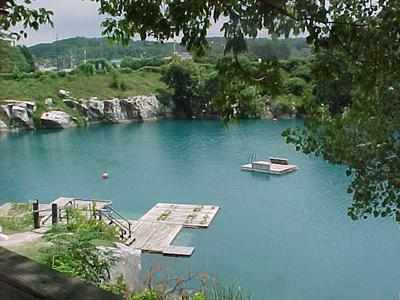
7
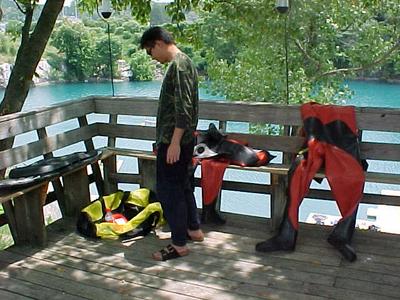
8 Here, one of the team members prepares for a dive. He is going to be putting on his "dry suit." Divers in Antarctica wear dry suits because it is too cold to wear the usual wet suit that scuba divers wear. A dry suit is a one piece rubber suit that zips in the back. It fits very tightly around the wrists and neck so the water cannot seep in. Gloves cover the hands and fit over the tightly fitted wrist bands to insure no leakage.
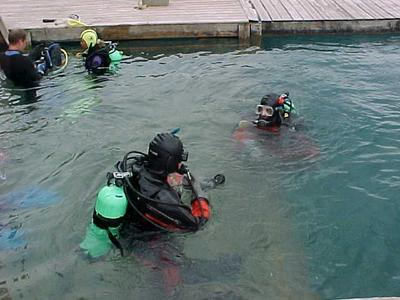
9 Going down!
Contact the TEA in the field at
.
If you cannot connect through your browser, copy the
TEA's e-mail address in the "To:" line of
your favorite e-mail package.
|
